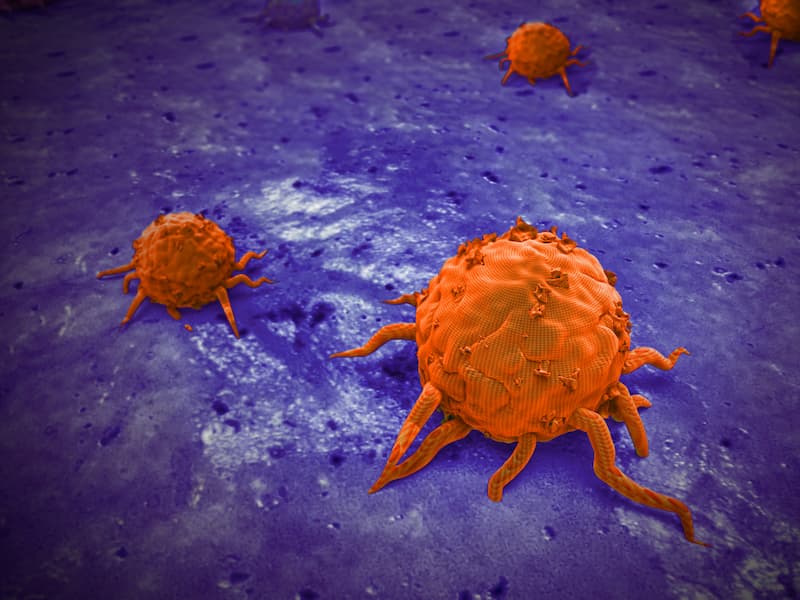Zurletrectinib Generates Responses in Advanced NTRK Fusion Solid Tumors
No dose-limiting toxicities were observed in the phase 1/2 trial evaluating zurletrectinib in patients with NTRK/ROS1-driven malignancies.
As of July 31, 2025, the objective response rate (ORR) among patients treated with zurletrectinib was 90% as assessed by an independent review committee,

Zurletrectinib (ICP-723) demonstrated tolerability and promising antitumor activity among pediatric and adolescent patients with NTRK/ROS1-altered solid tumors in a phase 1/2 clinical trial (NCT04685226), according to a news release from the developers, InnoCare Pharma.1
Data were presented at the Congress of International Society of Pediatric Oncology (SIOP) 2025 in an oral presentation by Juan Wang of the Sun Yat-sen University Cancer Center in Guangzhou, China. As of July 31, 2025, the objective response rate (ORR) among patients treated with zurletrectinib was 90% as assessed by an independent review committee (IRC). Additionally, among patients who completed full efficacy evaluations, those resistant to first-generation TRK inhibitors all achieved partial responses.
Furthermore, no dose-limiting toxicities were observed with the investigational agent, and treatment-related adverse effects (TRAEs) were primarily grade 1 or 2.
Additionally, the recommended phase 2 dose (RP2D) was found to be 7.2 mg/m2 for pediatric patients and 8 mg/m2 for adolescent patients. At the RP2D, comparable exposure levels between pediatric or adolescent patients vs adult patients were shown for zurletrectinib.
Previous interim findings presented at the 2025 American Society of Clinical Oncology (ASCO) Annual Meeting revealed that as of November 23, 2024, the median duration of response (DOR) and progression-free survival (PFS) were not reached.2 The 12-month rates for DOR and PFS were 92.0% and 90.5%, respectively. Additionally, of 3 patients with brain metastases, 2 achieved intracerebral responses.
Furthermore, the new drug application (NDA) for zurletrectinib as a treatment for patients with NTRK gene fusion-positive tumors was accepted by the Centre for Drug Evaluation (CDE) and was given priority review status in May 2025.3 The agency accepted the zurletrectinib NDA for review in the same patient population in April 2025.4
“Zurletrectinib has demonstrated outstanding efficacy and safety in adult, adolescent, and pediatric patients with tumors harboring NTRK fusion genes, bringing better treatment options for patients with solid tumors,” Jasmine Cui, PhD, co-founder, chairwoman, and chief executive officer of InnoCare, said in a news release on the NDA submission.4 “[InnoCare] is expanding the scope of its solid tumor pipelines through a combination of targeted therapies, immune-oncology approaches, and cutting-edge antibody drug conjugate [ADC] technology, looking forward to meeting the unmet needs of patients with solid tumors early.”
The multicenter, open-label phase 1/2 trial assigned patients with histopathologically confirmed, surgically unresectable, locally advanced or metastatic solid tumors who were 12 years of age and older to receive zurletrectinib as an oral tablet.5 The primary end points of the phase 1/2 study were safety and tolerability and maximum tolerated dose. Secondary end points included maximum concentration of zurletrectinib and ORR.
Patients were eligible for enrollment if they had at least 1 measurable lesion per RECIST v1.1 criteria, or for primary central nervous system tumors, per Response Assessment in Neuro-Oncology (RANO) or International Neuroblastomas Response Criteria (INRC) criteria; an ECOG performance status of 0 to 1 or Karnofsky or Lansky performance status of greater than 60; and a life expectancy of more than 3 months.
Exclusion criteria included having any concurrent malignancy within 5 years prior to first study dose, receipt of prior anti-cancer treatment within 28 days of the first study dose, or any major surgical procedures within 4 weeks or minor surgical procedure within 2 weeks of first study dose. Those with a history of allergic disease, severe drug allergy, or known hypersensitivity to any component of the tablet formulation were ineligible for study enrollment.
References
- Latest data of InnoCare's zurletrectinib orally presented at SIOP 2025. News release. InnoCare Pharma. October 29, 2025. Accessed October 31, 2025. https://tinyurl.com/3suebres
- Latest data of InnoCare’s robust oncology pipelines presented at the 2025 ASCO Annual Meeting. News release. InnoCare Pharma. June 1, 2025. Accessed October 31, 2025. https://tinyurl.com/tbsukc6f
- InnoCare’s zurletrectinib receives priority review from China’s NMPA. News release. InnoCare Pharma. May 2, 2025. Accessed October 31, 2025. https://tinyurl.com/ycx7vdv7
- InnoCare announces the acceptance of new drug application for pan-TRK inhibitor zurletrectinib in China. News release. InnoCare Pharma. April 16, 2025. Accessed October 31, 2025. https://tinyurl.com/4w29v4kc
- A phase I/II clinical trial of ICP-723 in the treatment of advanced solid tumors. ClinicalTrials.gov. Updated September 2, 2025. Accessed October 31, 2025. https://tinyurl.com/3xc4746u
How Supportive Care Methods Can Improve Oncology Outcomes
Experts discussed supportive care and why it should be integrated into standard oncology care.